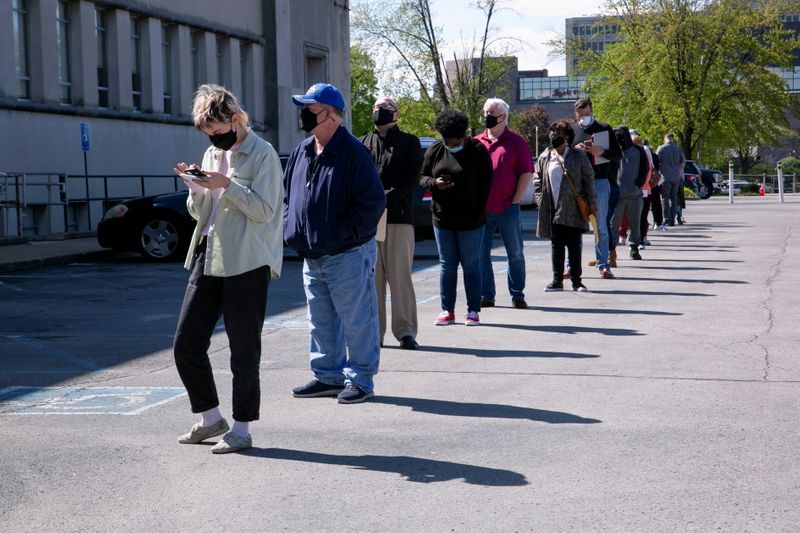(Reuters) -
1/PRIME TIME PAYROLLS
How fast is the U.S. recovery? Friday's U.S. monthly jobs report will add fuel to the debate.
In April, U.S. job growth unexpectedly slowed, possibly because of shortages of workers and raw material. Non-farm payrolls added a mere 266,000 jobs compared to predictions for more than 3-1/2 times that.
Optimism over jobs has offset concerns about rising inflation and diminishing government financial support, lifting May U.S. consumer confidence to a 14-month high.
For May jobs, a Reuters poll predicts a 621,000 rise. Strong data could again raise concerns of an earlier-than-expected stimulus unwind by the Fed.
-U.S. hiring takes big step back as businesses scramble for workers, raw materials
2/ PRICE WATCHING
Tuesday's euro zone flash inflation is sure to grab attention as the next European Central Bank meeting nears.
Inflation in the bloc is approaching its 2% target - the fastest in years - thanks to higher spending and base effects stemming from the 2020 oil price crash. Strong data could spark excitement or fear that a new era of inflation is dawning.
Not so fast, others argue. ECB Chief Economist Philip Lane, for one, has pushed against the inflation-is-back narrative, stressing labour markets will take years to return to pre-crisis levels and that stimulus is still needed to secure the recovery.
The data could pave the way for a lively June ECB meeting.
- Too early for ECB to taper emergency bond buys: Panetta
3/ OPEC & THE IRAN QUESTION
OPEC and its allies, the OPEC+ grouping, are expected to stick to the gradual easing of oil supply curbs at their Tuesday meeting, pinning hopes on a strong demand recovery.
Since OPEC+ decided to taper cuts by 2.1 million barrels per day in April, oil has extended its 2021 rally and is currently up over 30% and closing in on $70 a barrel.
One factor limiting oil price upside is the prospect of higher Iranian output should its nuclear deal with world powers be revived. If a deal is struck, Iran could add as much as 2 million bpd to supply.
-Uncertain about Iranian oil, OPEC+ likely to stick to policy
4/POLICY DOWN UNDER
The Reserve Bank of Australia meets on Tuesday and focus is on whether it will provide any hawkish hints, given a strong economic rebound and moves from peers towards slowing stimulus.
Few expect Australia to follow neighbour New Zealand, which signalled a potential rate hike in 2022. But investors are seeking clues on the RBA's asset-purchase plans ahead of its July meeting when it is due to decide whether to expand its quantitative easing programme.
Australia's pluses? A relatively low COVID-19 caseload and rising commodity prices. China's yuan at a three-year highs and signs of Beijing's comfort with the exchange rate bodes well for commodity exports too. The risk? A weaker Australian dollar versus the yuan, potentially spelling higher inflation.
- Australia c.bank to keep cash rate at 0.1% through mid-2023
5/ YUAN ON A TEAR
China's yuan is at the highest since 2018 but the People's Bank of China seems to show no discomfort with the recent gains. That's got markets guessing how policymakers in the world's second-largest economy plan to navigate economic recovery, the commodity price gains and inflation pressures.
Friday's official guidance rate -- the strongest since May 2018 and set above the psychologically important 6.4 per dollar level -- seemed like a tacit acceptance of a stronger yuan.

But officials have also become more vocal in recent days on pledges to crack down on forex market manipulation, warning on Friday against one-way yuan bets. They reiterated, however, there was no change to the country's currency policy.
-Chinese regulators vow to crack down on yuan exchange manipulation